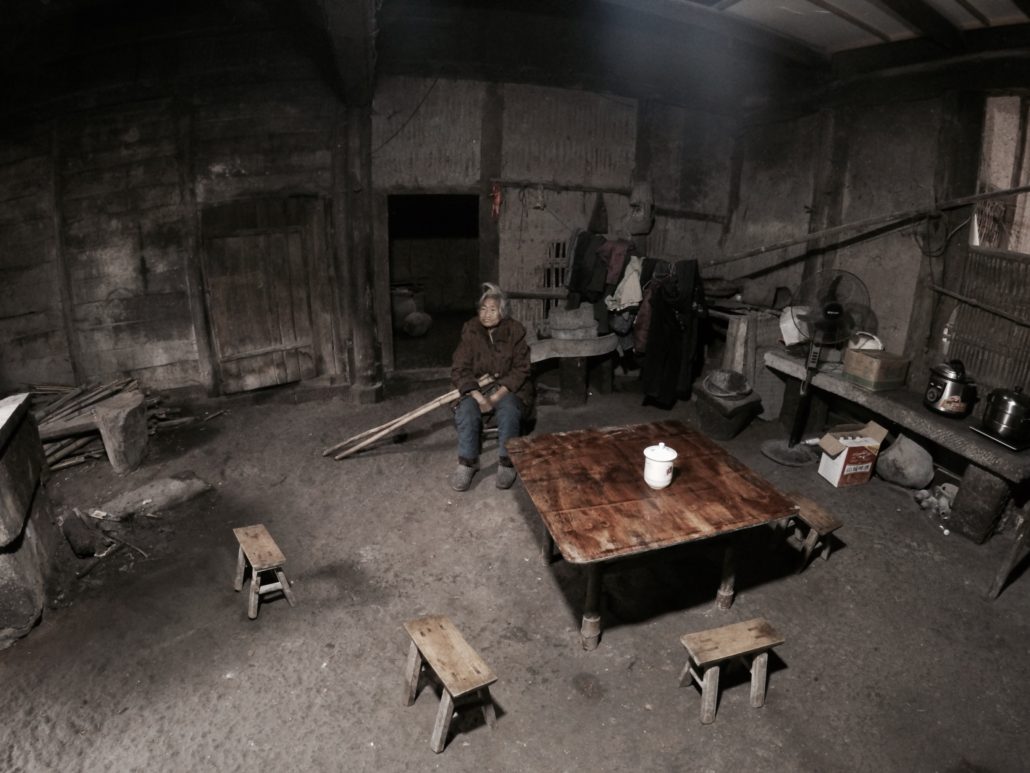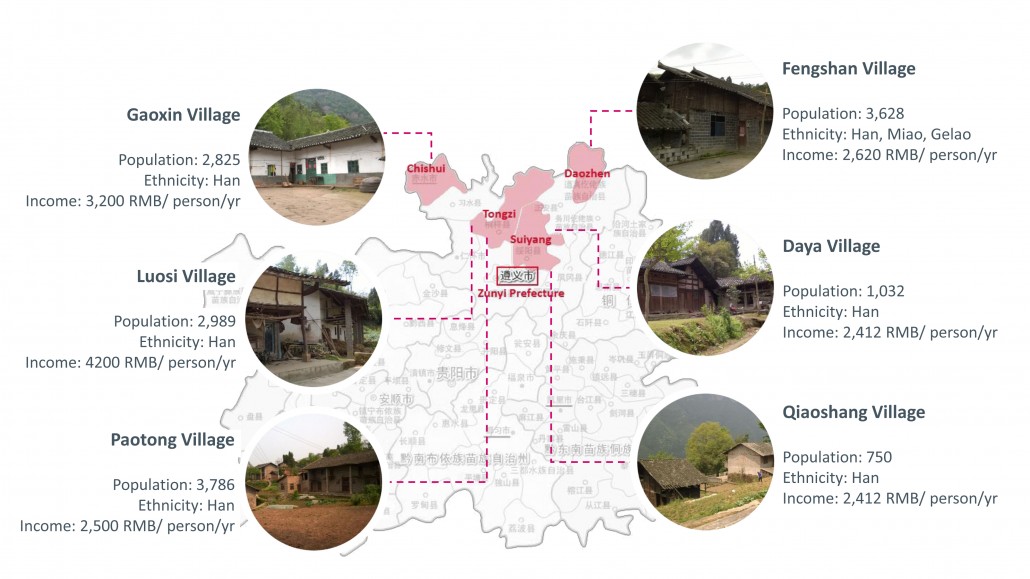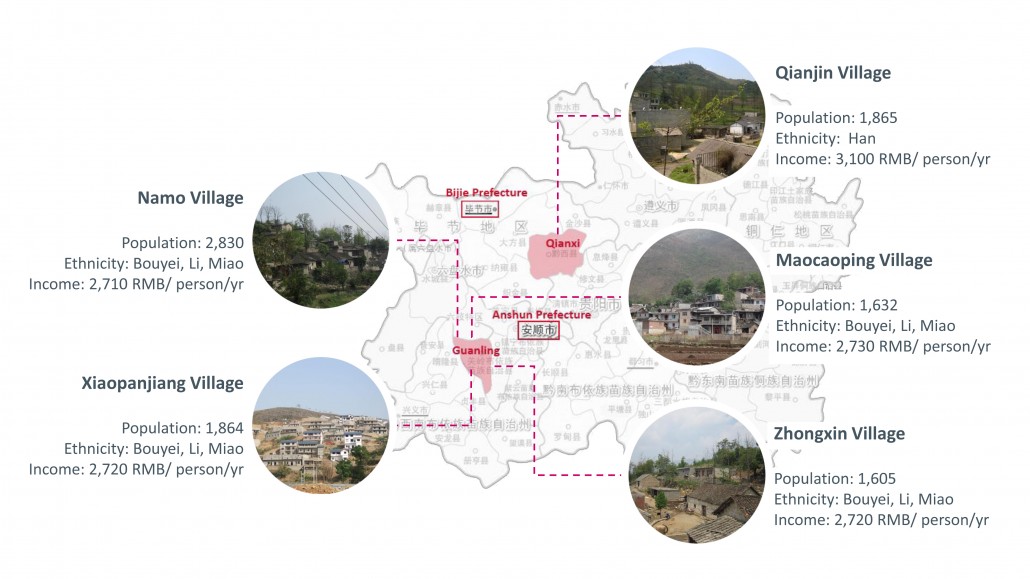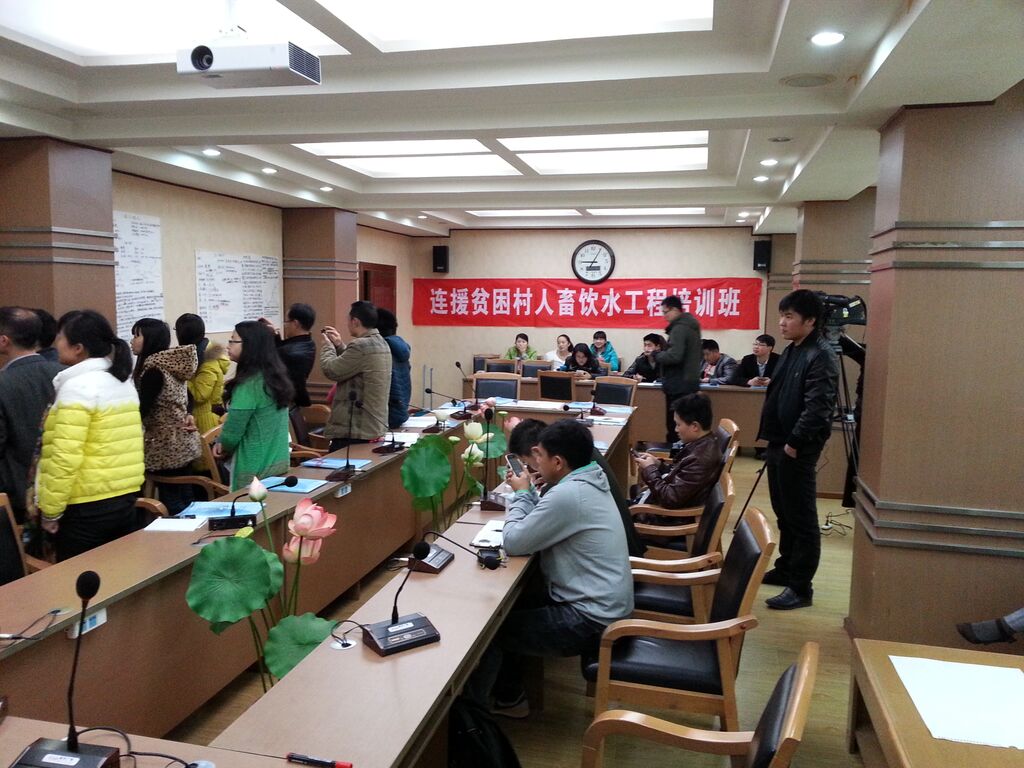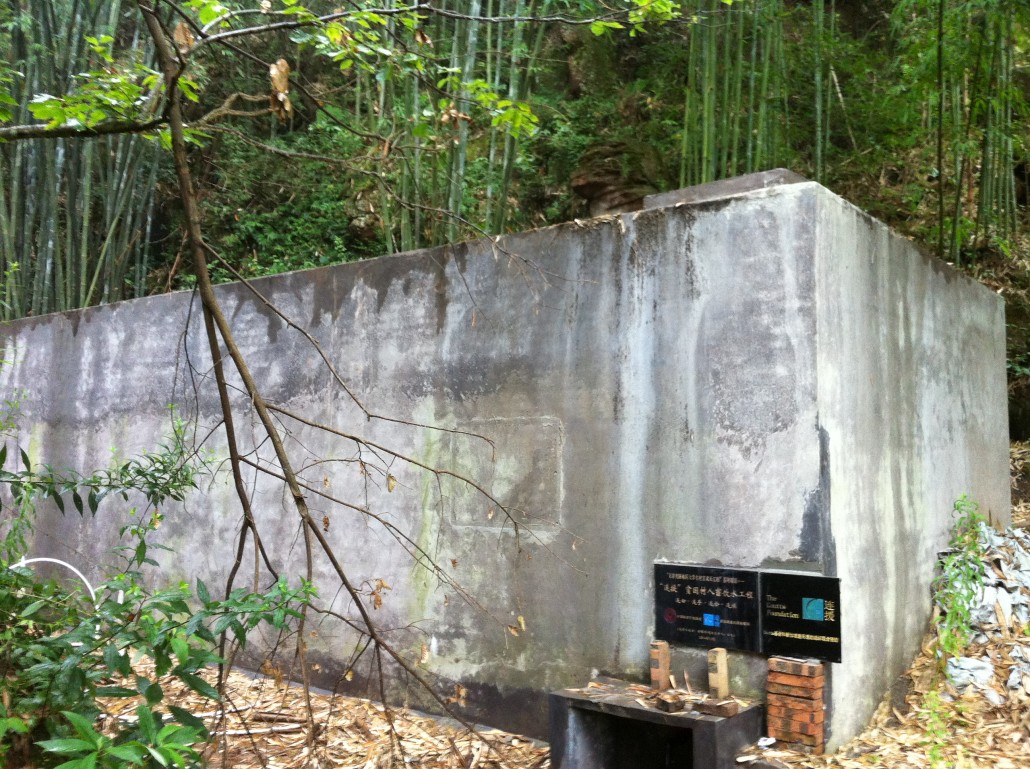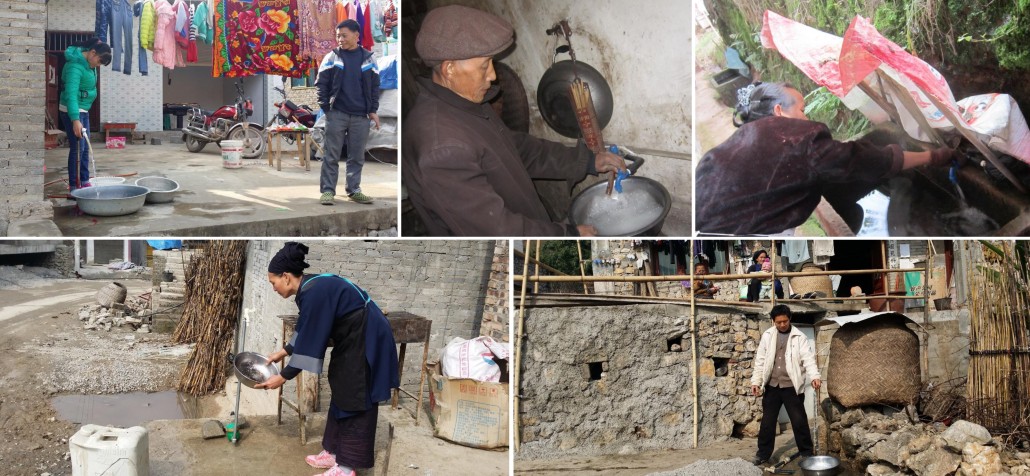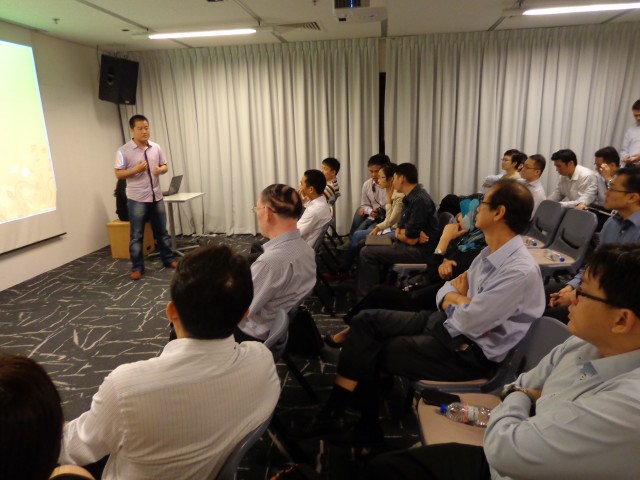The Last Fall
Wang Bangxian lives in Tiantaishan village in Guizhou province, China. On a rainy day many years ago, she set off on the long and arduous journey home after fetching buckets of clean water from a mountain spring. When full, her buckets weighed as much as she did.

Wang Bangxian demonstrating how she used to fetch water with buckets. The buckets are now used to transport animal feed and fertiliser instead.
She had to make the trip twice a day, rain or shine, in order to fetch enough water for drinking, cooking and washing.
On that fateful day, the rain had made the precipitous, mud-strewn trails even more slippery and dangerous. In a hurry to get home to her infant son, Wang Bangxian tripped and fell, breaking her foot and spilling the water.
“It was so painful that I cried.” – Wang Bangxian
She eventually made it home, but for half a month afterwards, Wang Bangxian was bedridden. Her husband had to sacrifice farming time to fetch water for the family. As farmers who depend solely on their crops for income, their livelihood was threatened.

Wang Bangxian and her husband still farms potatoes and sweet potatoes, which are photographed above in their home.
Over time, she was able to get back to her normal routine but her foot still hurts to this day. Rolling up her pants, she showed me a visible raised bump on her foot about the size of a small grape.

The raised bump on Wang Bangxian’s foot shows the site of her injury. With limited access to medical care back then, she used herbs to nurse her foot back to health.
Wang Bangxian was overjoyed when Village Water Management (VWM) programme brought access to clean piped water right to her home. These days, she no longer has to carry heavy loads of water along treacherous mountain roads, and has more time for farming and raising livestock.
This project in Tiantaishan village, Guizhou implemented under the Village Water Management (VWM) programme in China, is co-funded by CITIC Envirotech.
The Village Water Management (VWM) programme mentors a regionally or nationally available platform of grassroots leaders residing within the community, enabling them to implement clean water projects for the sustenance and development of their communities. The VWM programme is delivered in locations where available water sources are relatively clean but significantly distant from households.







